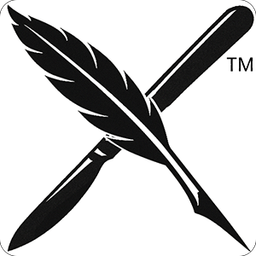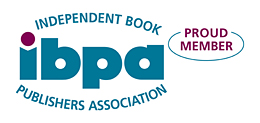Dilettante Press is technically a publisher in that it is the publisher of record for titles listed under its ISBNs and metadata for Library of Congress control numbers (LCCN). It is a publisher in that it establishes and maintains the printing and distribution of books through KDP and IngramSpark.
Dilettante Press is neither a traditional publisher nor a vanity press. If pushed to classify, we'd be a hybrid publisher. But our model is rare. Our transparency is even rarer. We consider ourselves a partner press, facilitating some of the more cumbersome aspects of self-publishing, while also partnering under our imprint. The success of this venture depends entirely on mutual trust and respect.
We truly intend to be selective with the work we will accept. The idea of Dilettante Press is that the quality of writing and production will always rival the Big Five, and every book published will be indistinguishable from any produced by traditional publishing houses. The only significant difference in the process is who is paying the bill: the author.
We don't even claim that there is anything particular or special about how we operate, at least in process. Our workflow is available for all to see right on the website. And how we justify our fee is also here for you to evaluate.
The founder of this imprint is an author first, and author first is the ethos we aspire to. Our share of net* profit from sales is 10% — authors receive 90% royalties. But we also cap what we receive at $1,500 per quarter. After that, every cent of sales revenue goes directly to the author.
Currently, the flat, one-time fee for services is $4,650. On the Services and Pricing page, we tell you what you can expect, but here we'll tell you exactly where your investment goes.
Money
It's where the rubber meets the road, right? Here is a breakdown of all the expenses that are paid out of the Core Agreement fee:
| Category | Item / Description | Cost (USD) |
|---|---|---|
| Static Costs | Copyright registration | $65 |
| PCIP block | $115 | |
| ISBNs * | $23 | |
| Proof copies (KDP + Ingram) | $55 | |
| Hardcover to LoC | $25 | |
| Hardcover to local library (perk) | $25 | |
| Subtotal – Static | $308 | |
| Representative Variable Costs | Interior formatting / typesetting (avg.) | $600 |
| Pre-press PDF check | $75 | |
| ePub / Kindle formatting | $150 | |
| Proofreading | $800 | |
| Subtotal – Variable | $1,625 | |
| Core Outlay | Estimated vendor/labor equivalent | $1,933 |
| Margin Use | Return reserve (refundable) | $250 |
| Remaining margin → labor & overhead | $2,467 | |
| Core Fee | Flat-rate total (regardless of length) | $4,650 |
*ISBNs and the imprint are inseparable, and both are included in every publishing agreement we offer. We don’t sell ISBNs. What we provide is the workflow that goes with them: assigning the ISBNs under the Dilettante Press imprint, entering and maintaining the metadata correctly, and ensuring your book is cataloged and discoverable at a professional standard. The ISBN itself costs almost nothing. The value is in the time, accuracy, and credibility of having your book properly registered and protected under a reputable imprint.
Note: These averages are based on books between 65k and 85k words. The Core Fee doesn’t go up or down based on length — because shorter books don’t always mean less work, and longer books aren’t always harder to produce. The goal is a fair, consistent rate that covers the full publishing process.
Labor Hours
- Non-typesetting tasks (registrations, covers, platforms, contingency, etc.): ~37 hrs
- Typesetting (avg., capped): ~20 hrs
- Total: ~57 hrs
Effective hourly rate (labor margin ÷ hours): $2,467 ÷ 57 ≈ $43/hour
Time
Time is money, right? Here is a list of the tasks that need to be completed and the time, on average, it takes to complete them. What is missing from this list is the time we take to connect, educate, and communicate with authors.
| Task | Low-End Hours (Experienced) | High-End Hours (Novice) | Notes |
|---|---|---|---|
| Registrations | ~3 hours | ~5 hours | Includes ISBNs, LCCN, and copyright registration. |
| ISBNs | 1 hour | 2 hours | Entering metadata for each format (paperback, hardcover). |
| LCCN (PCN program) | 30 minutes | 1 hour | Straightforward online application with existing account. |
| Copyright submission | 30 minutes | 1 hour | Online submission process. |
| Interior Formatting and Book Design | ~30 hours | ~60 hours | Varies by skill level and book complexity (tables, notes, graphics). |
| Typeset 300-page book | 20 hours | 60 hours | Layout, applying styles, correcting errors in InDesign (or similar). |
| Create print-ready PDFs | 2 hours | 6 hours | Generating and preflighting final files for IngramSpark and KDP. |
| Create Kindle formats | 3 hours | 6 hours | Converting manuscript to Kindle format (finicky with graphics). |
| Cover Design and Formatting | ~8 hours | ~20 hours | Full jacket design; more if custom artwork/illustration is required. |
| Create print-ready covers | 2 hours | 5 hours | Sizing and formatting for bleed and spine width adjustments. |
| Create Kindle covers | 1 hour | 2 hours | Derived from print design; single front cover image. |
| Platform Setup and Submission | ~4 hours | ~6 hours | Assumes all files and metadata are prepared. |
| IngramSpark (2 formats) | 2 hours | 3 hours | Uploading paperback and hardcover files. |
| KDP (print and Kindle) | 2 hours | 3 hours | Uploading print and ebook files. |
| Contingency / Revisions | 10 hours | 15 hours | For proofing changes and unexpected corrections. |
Note: These time ranges assume a working familiarity with publishing tools and workflows. If you are brand new to software like InDesign, Kindle Create, or metadata platforms, expect additional hours while climbing the learning curve. Unexpected issues (file errors, metadata changes, printer requirements) are accounted for in the Contingency / Revisions line.
Author's Editing Responsibility
Every manuscript accepted by Dilettante Press must be professionally copyedited before it enters our workflow. Editing is not included in the Core Fee. The cost varies too widely to build into our model, and the relationship between author and editor is too important to reduce to a bundled service.
Most authors will already have their book edited by the time they reach us. If not, we’ll help connect you with a qualified editor. In that case, we charge a flat $175 administrative fee to manage the process — the editing fee itself is paid directly to the editor, without markup.
What to Expect for Copyediting Costs
Industry-standard rates (Editorial Freelancers Association):
- Copyediting ranges from $0.02 to $0.045 per word.
- On an 80,000-word manuscript, that comes to $1,600 – $2,400.
The Bottom Line
- Core Agreement Fee: $4,650
- Professional Copyediting: $1,600 – $3,600
- Total Investment: $7,350 – $9,350
This is the cost of production — taking your finished manuscript from your hands to the reader’s. Marketing is a whole other beast and outside the scope of Dilettante Press’ services — at least for now.
If you’re willing to put in the time, you can save about $2,500 by doing the legwork on your own. If that’s the route you want to take, check out our articles and blog posts for step-by-step guidance and some tips and tricks to save yourself a few gray hairs.
The one exception? Copyright Office submission. That site is such a rat’s nest I won’t even try to explain it. Sorry, not sorry, you’re on your own with that one.

This is why I'm laying all my cards on the table:
Before starting Dilettante Press, I was a writer and author. My first published book, It's Just a Thought, was an adventure, to say the least. My background in publishing was primarily in newspaper and large-scale printing.
Like a lot of authors, I investigated what it takes to get published. I asked a librarian who pointed me to Writer's Market. I read that and went through the listings. I never did send a pitch to an agent or publisher. It was just too intimidating for me.
I joined a couple of authors' associations. I joined a group for a well-known publishing house that deals with the genre of book I wrote. I even paid for their "writer's community" because it supposedly had a back door to submissions. That was a bit of a joke, because all it did was keep me from being automatically kicked to the curb. At the time, it was a good chunk of change, too, and I felt foolish and fooled.
When I investigated further about what it takes to get an agent or get a nibble from a traditional publisher — of any size — I realized that the bar was just too high for me. I didn't have a social media following, and I didn't want one. I tried to be engaged and engaging on Twitter and Facebook, but the noise of other authors screaming to the rafters and the cascade of ads and false promises quickly sent me packing.
This isn't meant to be a sad or bitter story. It's just the way it went. So, discouraged from traditional publishing — but otherwise undaunted — I started exploring self-publishing. I mean, what else was there?
I'd known about vanity presses for a long time — at least since the early 1980s. As far as I knew, they were the first of the non-traditional "publishers," and their reputations preceded them. And still do. Their stench permeates every corner of the self-publishing services industry. The stigma of getting a book made through a vanity press is as strong as ever. Every writer's forum, message board, and social media group warned me off.
And for those other "subsidy" presses? I looked for ones that made it to the Alliance of Independent Authors Watchdog list, or weren't on Writer Beware. And checked every one I came across against those lists. But even the ones with great reputations were too expensive for my budget. I'd been warned off of any of them by the posts and comments in author groups and forums. I just didn't trust them to deliver.
That isn't to say that there aren't good ones out there. In the process of creating Dilettante Press, I discovered some fair and relatively transparent subsidy press outfits that I think are worth the expense — as long as they deliver.
But there are some obvious red flags. The first is overpromising. If someone tells you they can guarantee bestseller status, or that your book will be on every shelf in America, they’re not being straight with you. Nobody can promise what readers will do.
The second is excessive royalty take. If you’ve already paid up front for services, and then the press still wants thirty, forty, or even seventy percent of your royalties, that isn’t partnership — it’s profiteering.
Another is hidden or inflated fees. ISBNs don’t cost $125 apiece in bulk, and copyright registration isn’t a $500 service. If you see numbers like that, you’re not paying for publishing — you’re paying for padding.
Then there are mandatory marketing packages. Real marketing can be worth every penny, but when you’re forced into a “campaign” that amounts to social-media spam and a press release no one reads, that’s not investment — that’s a profit center for the press.
And here’s the big one: you’re never told what your responsibilities are. If the pitch makes it sound like all you have to do is submit your manuscript, nod along with their editors, and then laissez les bons temps rouler — that’s the hallmark of a vanity press. Real publishing is work. You should know exactly what’s expected of you, and exactly what the press will (and won’t) do.
And finally, contracts written in fog. If you can’t clearly find the royalty structure, the returns policy, or how and when you get your rights back, assume the vagueness is intentional.
I didn't create Dilettante Press to suck the money and the life out of anyone's dreams. I created it, at first, as a wink and a nod for my forthcoming book. I then expanded the idea to make a reputable imprint with a low price of admission. I created the Core Agreement to offer and provide my exacting standards through my workflow.
I don't offer à la carte because most of those things are simple enough once you've done it a time or two, but the first time through is a slog. For example, the copyright registration fee $45 - $65 and involves navigating an arcane website that can best be described as a rat's nest. That's included in Dilettante Press' Core Agreement. The Library of Congress Control Number (LCCN) is free and just takes time, knowing when to request it and how to enter the metadata to match the ISBN.
Side note: The order of operations here, if you'd like to do it yourself: ISBN setup with metadata — it doesn't have to be complete all the way through — and it can't be because you have to come back to it later. LCCN request. Wait for approval and take your number back to the ISBN and enter it in the metadata. Then, if you want (and you should want), register the manuscript with the U.S. Copyright Office. That one is always the last one because of the way the Copyright Office and Library of Congress are intertwined.
The whole process for me, start to finish, takes around 5-8 hours — the most time spent on the Copyright Office registration. If you don't already have accounts set up and are navigating each part of the process for the first time, either add 10 hours, or multiply 10 to the workload.
There is nothing I can do to completely detach Dilettante Press from the bad reputation and stigma created by bad actors. What I can do is something unusual: spell it out in black and white. This is what I charge and why I charge what I do. I'll gladly show what my expenses are, what my labor is, and what the author gets out of the deal. It’s either a good value for you, or it isn’t. I will show you the math so you can decide.





